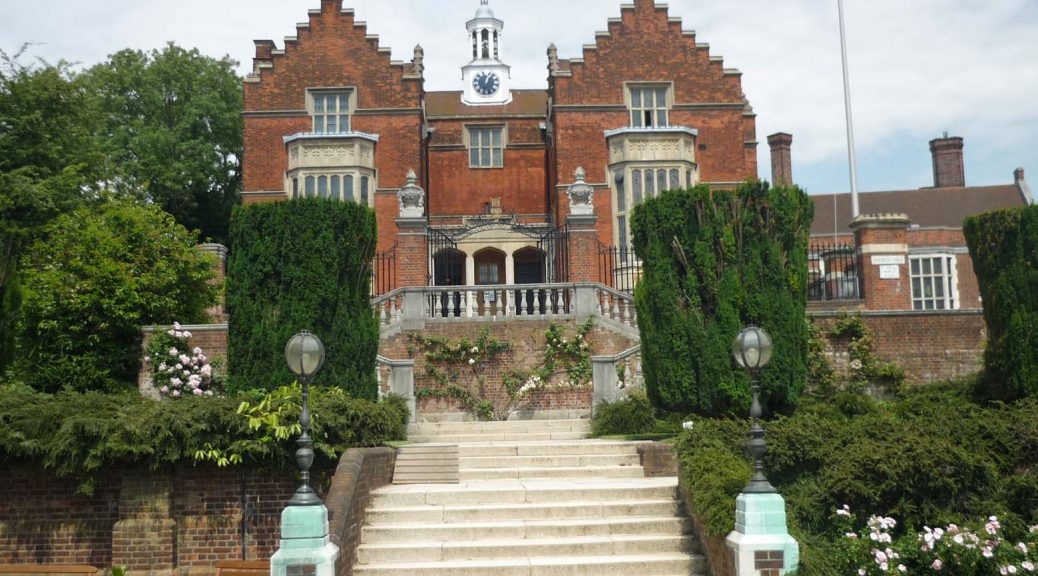
Churchill Misquotes: Never give up and Definition of Fanatic
Q: Did he say “Never give up”?
Did Churchill ever make a three word speech, “Never Give Up,” and then just sit down? —A.S., Riga, Latvia
That story is all over the web, constantly repeated. But it is entirely wrong. I think it springs from the many inaccurate “wit and wisdom” quote books.
A: “In” not “up,” and more than three words
The three words (“in” not “up”) were part of Churchill’s 20-minute speech to the boys at Harrow, his old school, when he attended their annual songfest (“Songs”) on 29 October 1941. The full speech is in Robert Rhodes James, ed., Winston S. Churchill: His Complete Speeches (New York: Bowker, 1974) and in Churchill’s speech volume The Unrelenting Struggle (London: Cassell, Boston: Little Brown, 1942).
The salient portion, from Churchill by Himself, is as follows:
This is the lesson: never give in, never give in…in nothing, great or small, large or petty–never give in except to convictions of honour and good sense. Never yield to force; never yield to the apparently overwhelming might of the enemy…. Do not let us speak of darker days; let us rather speak of sterner days. These are not dark days: these are great days—the greatest days our country has ever lived; and we must all thank God that we have been allowed, each of us according to our stations, to play a part in making these days memorable in the history of our race.
(And, for the umpteenth time, when he said “race” he meant “people.”)
Misreported at Columbia
In 2017 it was incorrectly reported that a three-word speech “never give in” was made at Columbia University, New York in 1946, a fortnight after his famous “Iron Curtain” address at Fulton, Missouri. His speech at Columbia was brief but poignant. It began with words we might well direct at Columbia today:
In my heart there is no abiding hatred for any great race on the surface of the globe. I earnestly hope that there will be no pariah nations after the guilty are fully punished. We have to look forward to a broader, fairer world….
Thus walking forward together, with no aim of subjugation or material profit or sordid interest, marching forward together we may render at this juncture a service to humanity which no countries before have ever had the honour to do.
Q: Did WSC define a “fanatic”?
Can you verify whether or not Churchill said: “A fanatic is someone who won’t change his mind and won’t change the subject”? —T.M., Ontario, Canada
A: Not Churchill
The maxim may well be true (and often applicable), but it is not Churchill’s. From Churchill by Himself, the “Red Herrings” appendix (unattributed quotes):
“Often attributed to Churchill or President Truman. Ralph Keyes, editor, The Quote Verifier, writes: ‘It’s a quotation I see often, but without a source. I doubt that it’s Truman, or, if he ever said it, that the quotation originated with him.’”
More on false Churchill quotes
“All the Quotes Churchill Never Said,” in four parts beginning here, 2018.
“Fake Churchill Calumny: Subsidiary Emissions from the Odd Crater,” 2020.
“Churchillian (Or Yogi Berra) Drift: How Quotations are Invented,” 2013.
“Fake Quotes: Lady Astor and Other Women Nemeses,” 2021.
“A-Z Quotes: A Cornucopia of Things Churchill Never Said,” 2018.
Carlos Marin, “‘Surely Churchill Said That?’ The Expanding Lexicon of the False Quote,” 2021.






